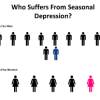- Empty cart.
- Continue Shopping
The Impact of Diet on Cholesterol Levels in Men

Cholesterol is a fatty substance found in the cells of our body and is essential for various bodily functions. However, an excess of cholesterol in the bloodstream, specifically LDL cholesterol (often referred to as “bad” cholesterol), can contribute to the development of heart disease. Diet plays a crucial role in managing cholesterol levels, and its impact is particularly significant in men.
Understanding Cholesterol Levels
Before delving into the impact of diet, it’s essential to understand the basics of cholesterol levels and their significance in men’s health.
- Total Cholesterol: This number represents the overall amount of cholesterol in your blood, including both LDL (low-density lipoprotein) and HDL (high-density lipoprotein) cholesterol.
- LDL Cholesterol: LDL cholesterol is often considered the “bad” cholesterol because it can build up in the walls of arteries, forming plaque that narrows and restricts blood flow. High levels of LDL cholesterol are a risk factor for heart disease.
- HDL Cholesterol: HDL cholesterol is the “good” cholesterol. It helps remove excess LDL cholesterol from the bloodstream, transporting it to the liver for disposal.
Impact of Diet on Cholesterol Levels
Dietary choices have a substantial impact on cholesterol levels, especially in men who are more prone to heart disease. Here are some key dietary factors to consider:
1. Saturated and Trans Fats
Foods high in saturated and trans fats, such as red meat, full-fat dairy products, fried foods, and commercially baked goods, can raise LDL cholesterol levels. Men should limit their intake of these fats to reduce the risk of heart disease.
2. Dietary Cholesterol
While dietary cholesterol (found in foods like eggs and shellfish) can have a modest impact on blood cholesterol levels in some individuals, it’s not as significant as once thought. However, men with high cholesterol should still moderate their intake of these foods.
3. Monounsaturated and Polyunsaturated Fats
Monounsaturated and polyunsaturated fats, found in foods like avocados, nuts, seeds, and fatty fish (e.g., salmon, mackerel, and trout), can help lower LDL cholesterol levels when consumed in place of saturated and trans fats.
4. Soluble Fiber
Foods rich in soluble fiber, such as oats, barley, beans, lentils, and fruits like apples and citrus, can help lower LDL cholesterol levels by binding to cholesterol and removing it from the body.
5. Plant Sterols and Stanols
Some fortified foods and dietary supplements contain plant sterols and stanols, which can help lower LDL cholesterol levels when consumed as part of a heart-healthy diet.
6. Omega-3 Fatty Acids
Omega-3 fatty acids, found in fatty fish, flaxseeds, and walnuts, have heart-protective properties. They can help reduce triglycerides (another type of fat in the blood) and may lower the risk of abnormal heart rhythms.
Building a Heart-Healthy Diet
To manage cholesterol levels and support heart health, men should consider adopting a heart-healthy diet. Here are some dietary recommendations:
1. Choose Lean Proteins
Opt for lean protein sources like skinless poultry, fish, legumes, and tofu instead of red meat. When consuming red meat, select lean cuts and trim visible fat.
2. Incorporate Fatty Fish
Include fatty fish rich in omega-3s, like salmon and trout, in your diet regularly. Aim for at least two servings of fatty fish per week.
3. Increase Fiber Intake
Consume a variety of fiber-rich foods, including whole grains, fruits, vegetables, and legumes. These foods can help lower LDL cholesterol levels and improve overall heart health.
4. Use Healthy Fats
Replace saturated and trans fats with monounsaturated and polyunsaturated fats. Use olive oil, canola oil, and nuts as cooking ingredients or salad dressings.
5. Limit Processed Foods
Minimize your intake of processed and fast foods, as they often contain unhealthy trans fats and excessive sodium.
6. Moderate Alcohol Consumption
If you consume alcohol, do so in moderation. For men, this typically means up to two drinks per day.
7. Stay Hydrated
Water is essential for overall health, including heart health. Aim to stay adequately hydrated throughout the day.
8. Portion Control
Be mindful of portion sizes to avoid overeating, which can contribute to weight gain and elevated cholesterol levels.
Finally, Cholesterol management is a critical aspect of men’s health, as they are at a higher risk of heart disease. By making informed dietary choices and adopting a heart-healthy eating pattern, men can significantly impact their cholesterol levels and reduce their risk of heart-related issues. Remember that maintaining a balanced diet, combined with regular physical activity and routine check-ups with a healthcare provider, is essential for overall cardiovascular health. Making these lifestyle changes today can lead to a healthier and more fulfilling tomorrow.








